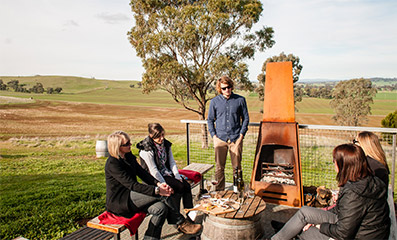When a staff member chooses to stay or leave their job it involves a decision-making process about whether theirs and (other family members) life aspirations are being met by the current set of living, working, schooling and social arrangements.
This assessment of life aspirations was defined by Dr Cosgrave in her Whole-of-Person Retention Improvement Framework as involving different aspects of both professional and personal satisfaction.
These were explained in the fundamentals section and the table is reproduced here:
| Types of Satisfaction | WoP-RIF domains | Major influences on job/personal satisfaction |
| Professional | Workplace | High quality workplace relationships with line manager and team |
| Organisational | Business managed efficiently and strategically | |
| Role | Opportunities to engage with skilled professionals in the same field | |
| Career | Opportunities within the business and locally for career development and advancement | |
| Personal | Place | Feel sense of belonging in place |
| Community | Community participates in the planning and implementation of attraction and retention strategies |
Life aspirations are many and varied and as the employer some are outside your locus of control such as a staff member resigning so as to move for a child’s education, a partner’s new job, caring responsibilities or retirement.
Dr Cosgrave call these types of resignations ‘unavoidable turnover’ as they cannot be influenced. However, there are many aspects of turnover that are withing your locus of control as the employer and/or are aspects the community can influence.
Dr Cosgrave’s research has identified the following professional satisfaction aspects as contributing to employees decision to stay or leave a job and those that you as an employer can influence:
| Workplace | Organisational | Role | Career |
| Line manager’s understanding and support to employee to perform the job | Employee was given a comprehensive orientation and sufficient support at start | Employee has regular access to professional development and training opportunities | |
Work team:
|
Staffing levels are satisfactory to meet service/business demands | Workload is manageable | There are career progression opportunities in the business/region |
| Employee feels their skills and professional expertise is valued | Remuneration is adequate | Mentorship is provided to support employee’s career development | |
In terms of community and place, Dr Cosgrave’s research has identified the following personal satisfaction aspects as influencing people’s decision to stay or leave a rural community that a community could influence:
- Personal safety
- Cultural safety
- Suitable and available housing
- Partner employment/education opportunities
- Suitable and available childcare/schooling
- Suitable and available healthcare services
- Suitable and available care for pets
- Familiar foods
- Activities or events of interest
- Meaningful social connection in the region
Here are Dr Cosgrave’s recommendations to support high levels of life satisfaction among your employees:
1. Check in-often and quickly act to address issues in your locus of control
2. Identify systemic issues and support whole-of-community solutions
The Stay & Retain Checklist
Do you have the systems and policies in place to support staff to choose to stay working in your business and living in the Shepparton region?









